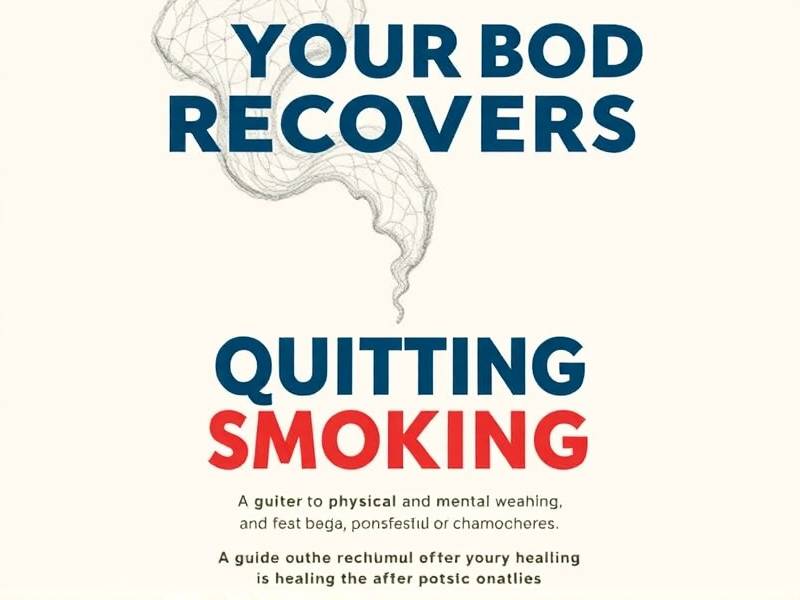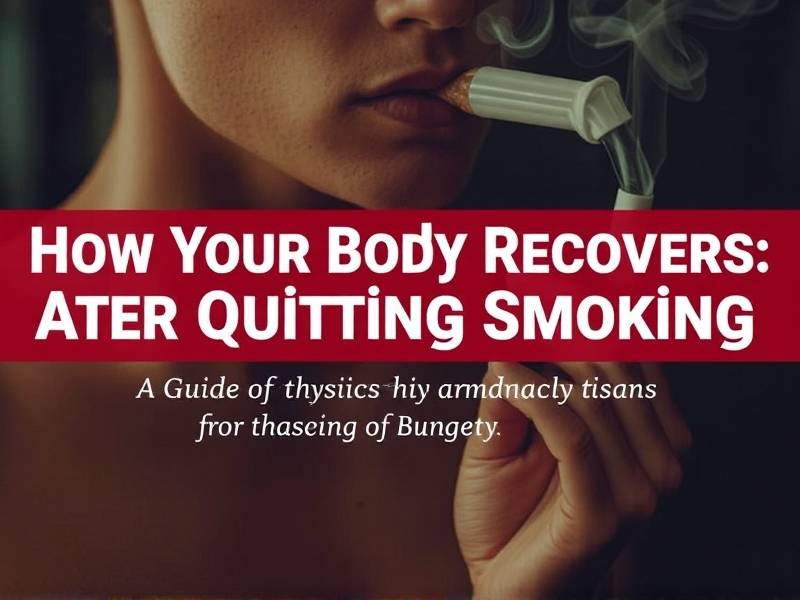How Your Body Recovers After Quitting Smoking: A Guide to Physical and Mental Healing
How Your Body Recovers After Quitting Smoking: A Journey to Physical and Mental Well-being
Introduction: Quitting smoking is a significant step towards a healthier lifestyle. Many individuals are aware of the health risks associated with smoking, but they may not fully understand the incredible process of recovery that begins once they kick the habit. This guide delves into the physical and mental healing journey that follows quitting smoking, providing insights and hope for those on this transformative path.
I. The Physical Recovery Process

-
Immediate Benefits
- Within minutes of quitting, your heart rate and blood pressure begin to normalize.
- Carbon monoxide levels in your blood start to decrease, allowing more oxygen to flow through your body.
-
Weeks 1-3: Early Improvements
- Your sense of taste and smell will start to improve as your lungs clear out.
- Your energy levels may increase as your body adjusts to the absence of nicotine.
-
Months 1-9: Long-term Health Gains
- Your risk of heart disease begins to decline.
- Your lung function continues to improve, making it easier to breathe.
-
Years 10-15: Dramatic Reduction in Risks
- Your risk of developing lung cancer is cut by half compared to continuing smokers.
- The risk of stroke also decreases significantly.
II. The Mental Recovery Process
-
Cravings and Withdrawal Symptoms
- It's normal to experience cravings for nicotine after quitting.
- Symptoms like irritability, anxiety, and restlessness may arise during withdrawal.
-
Strategies for Coping with Withdrawal
- Identify triggers that lead to cravings and avoid them.
- Practice relaxation techniques such as deep breathing or meditation.
- Stay hydrated and eat a balanced diet rich in fruits, vegetables, and whole grains.
-
Long-term Mental Health Benefits
- As your body recovers physically, you'll also notice improvements in mental health.
- Quitting smoking can lead to increased self-confidence and a sense of accomplishment.
-
Seeking Support
- Joining a support group or seeking professional help can provide additional resources for coping with withdrawal symptoms.
Conclusion: The journey towards quitting smoking is not only about overcoming physical addiction but also about nurturing mental resilience. By understanding the recovery process, individuals can better navigate the challenges that come with breaking free from the grip of tobacco dependence. Embrace this transformative journey with patience, support, and determination – your body and mind will thank you for it!

